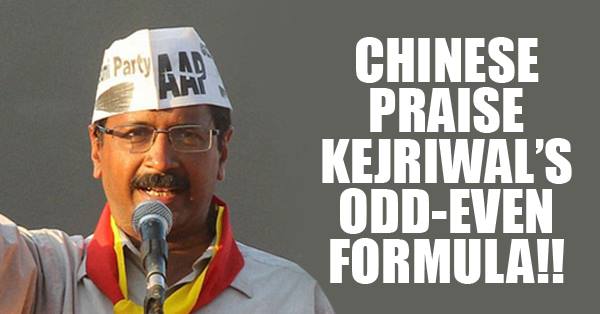Delhi’s government odd-even formula got mixed reactions from all over the country but they got praised from the citizens of a neighboring country. Delhi government has decided to implement this rule from January 1, 2016 which says that bikes and cars with odd and even number plates will be allowed on roads on alternate days only, in the beginning this rule will be on trial basis for 15 days and its further extension will depend on the result of these 15 days.
Delhi government’s move has got support from the citizens of Beijing, China as PTI talked to a number of people there but they also clearly said that this move will be effective only if the city has a capable public transport in place.
Beijing has a population of 21 million and it has been imposing this odd-even rule since 2008 Olympics, however this rule is imposed only during special events such as APEC leaders summit which took place last year and anti-fascist military parade which was conducted this year. In fact, to control the level of pollution, Beijing has even taken the extreme step of prohibiting the sale of new cars and currently two number system is in place in which number plate ending with certain numbers won’t be allowed on road for one day of the week.
City has already controlled the car sales since 2011 as they issue 20,000 car plates by auction every month, it has been decided that by the end of 2017, the number of vehicles in the city should not be more than 6 million which is 5.5 million as of now.
Any government which wants to restrict the cars on the roads should be sure to have an effective public transport system like well connected metro and bus systems without which people will suffer, Zhou Xujun, a senior journalist said in reaction to the recent move by Delhi Government to implement the alternate days concept.
Zhou Xujun, a senior journalist has this to say in relation to Delhi’s odd-even formula, “Any government which wants to restrict the cars on the roads should be sure to have an effective public transport system like well connected metro and bus systems without which people will suffer.”
Wang Liyl, a private sector employee feels, “I feel odd-even cars number ban is a good idea. Due to increasing noise and air pollution in big city like Beijing it is really important to take such measures to control it.”
Yuquan, another resident said, “Imposing odd-even car ban created troublesome situations to car owners at times, especially during emergencies and when one wanted to rush to be in time for an event.”
“I believe there is need to come up with a new idea to deal with traffic and air pollution.”
When Beijing imposed the rules, it also made dedicated efforts to improve their public transportation, the metro system in particular. Beijing’s metro system is undoubtedly one of the largest in the world; it has 18 metro lines covering a distance of 527 kms with 319 stations. It gave 3.41 billion trips in the year 2014, making it the world’s busiest metro system.






